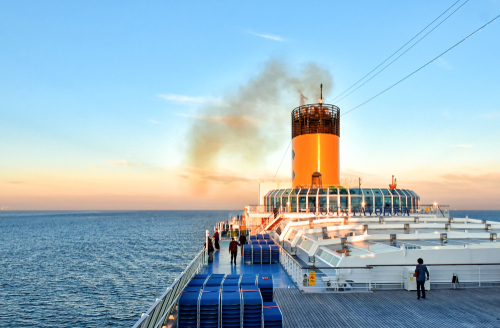Shipping’s CO2 emissions fell 1% during 2020, with the COVID-19 pandemic affecting the shipping activity, says maritime data provider Marine Benchmark.
More specifically, CO2 emissions from tankers, bulkers, and containers rose by 1.2%, while a 2.4% decline was reported for container emissions.
On the other hand, cruise ship emissions reported the biggest fall, down by 45%, with ferries, roro’s and vehicles carriers reporting steep declines.
Commenting on the findings, Torbjorn Rydbergh, Marine Benchmark’s CEO, noted that COVID-19 has had a varied effect on shipping, with tankers and bulkers generally performing well.
He also added that while the overall result means a decrease in carbon emissions for 2020. The effect of this result however may be temporary, considering that the current recovery in global economic demand leads to better 2021 shipping activity.
According to Marine Benchmark, marine heavy fuel oil is about 86% carbon, meaning that around 3.15 tonnes of CO2 per tonne of fuel consumed.
In addition, taking into considearation that the carbon content of diesel is slightly higher, so too are the CO2 emissions.
Finally, Marine Benchmark noted that its algorithms estimate vessel fuel consumption by main and auxiliary engines.






























































